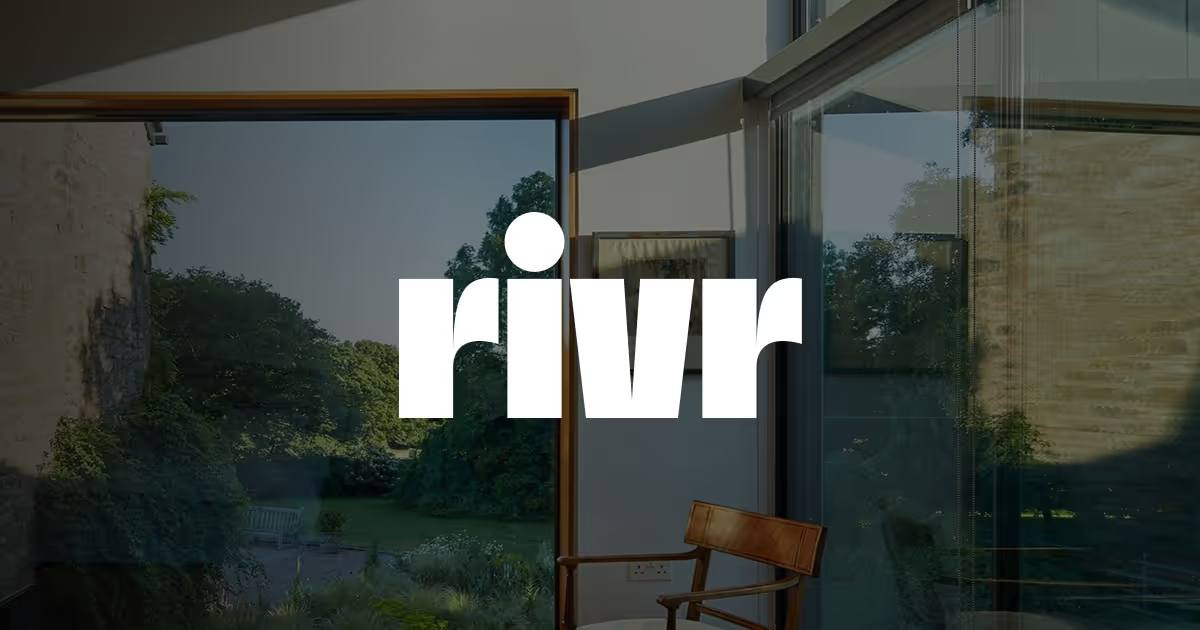
Home Insurance for New Builds: The Complete UK Guide
Moving into a new build home should feel simple. Yet choices about home insurance, buildings insurance, and new build warranty can be confusing. This guide explains what to insure from exchange, how the National House Building Council Buildmark scheme works, and how to set the right rebuild value. It also shows how rivr’s home insurance can help you protect a brand new home.
New build warranty and home insurance explained
Most new build homes fall under the NHBC Buildmark scheme or alternatives like Premier Guarantee and LABC Warranty. Each warranty provider sets its own rules. Keep the NHBC Buildmark certificate or other buildmark certificate with your legal papers.
The first two years
The builder is responsible for defects that do not meet NHBC standards. They must respond and complete repair work.
Years 3 to 10
The Buildmark warranty covers problems that later cause structural damage, such as foundations or a roof defect. These are structural issues, not day-to-day risks.
Why a warranty is not insurance
A home warranty covers problems caused by structural defects. It does not cover escape of water, fire, theft, storm, or accidental damage. Home insurance protects against those risks from move-in.
What rivr policies do for a new build home
.jpg)
rivr buildings cover protects the structure against insured perils and includes extensions such as:
- Locating leaks and repairing external pipes up to £10,000
- Alternative accommodation for up to 36 months during reinstatement work
Contents insurance ensures possessions at the property and worldwide, subject to your schedule. It also covers possessions in transit with removers, subject to limits and packing conditions.
A combined policy for buildings and contents simplifies administration. Add ons such as home emergency are optional. With rivr, home emergency applies only if listed on your schedule.
If a new build property is unoccupied for more than 45 days, insurers may restrict cover for accidental damage, theft, and vandalism. Plan move-in to avoid reduced protection.
New build, older properties, and how risks differ
.png)
Compared with older properties, most new build homes have safety features such as alarms, secure doors, and efficient plumbing systems. This can lower some risks.
However, snagging issues in bathroom suites, windows, or finishings are common. Insurance responds to damage caused by insured events. A build warranty covers structural defects.
Escape of water is one of the most frequent claims, even in brand new homes. Home insurance covers the insured loss. The build warranty may later fund repair work if a proven defect caused it.
British insurers also set premiums based on sums insured, location, and claims discount. Do not assume homes are cheaper to insure just because they are new.
Getting the sums insured right on a new build

Buildings insurance must reflect the rebuild cost, not the home's market value. ABI guidance confirms the rebuild value is usually lower than sale price. Use the ABI/BCIS calculator for standard houses or a surveyor for bespoke build homes.
rivr requires that you insure buildings for the full rebuild value, including professional fees and debris removal. Update cover if you build house extensions or make major works over £75,000. Notify your insurer to keep insurance aligned.
Address and admin quirks on a new build property
New addresses sometimes do not appear on insurers’ own databases or Royal Mail’s Postcode Address File. This can block quotes. Developers should move an address from the NYB file to Royal Mail’s PAF once the building department confirms occupation.
If your new build property does not appear, ask your developer to confirm the address and request the Royal Mail update. Then retry after systems refresh.
Practical tips when buying a new build
- Confirm handover and file your new home warranty or NHBC Buildmark certificate.
- Photograph rooms, windows, doors, the roof space, and all meters on day one.
- Record serials for alarms and appliances.
- Use contents insurance for move-in. Add accidental damage for extra protection.
- If buying off-plan, confirm who insures the shell before completion.
New build home insurance with rivr in practice
Arrange new build home insurance before you collect the keys. A combined policy can cover both buildings and contents, with optional add ons such as accidental damage chosen only if they add value.
When you move in, check secure doors, alarms, and emergency contacts. Even without previous owners at the address, your personal claims discount may still apply.”
Final checklist
Protect what matters with rivr

rivr is a high-value, digital-first home insurance provider built around the needs of modern lifestyles. We provide tailored home and contents cover for primary residences, with a focus on clarity, speed, and simplicity.
Arrange buildings cover from exchange, add contents insurance, and select add ons where needed.
Speak to our team about setting the right rebuild cost and keeping your home insurance cover aligned with your new build plans.
Read more
Frequently asked questions
It’s standard home insurance for a newly built property, set up from exchange. Cover is based on the rebuild cost and complements any builder warranty, protecting you against risks like fire, flood, and storm damage.
No. A Buildmark warranty deals with structural issues over time. Home insurance protects against day-to-day risks, including fire and escape of water.
You usually need buildings insurance from the date you exchange contracts. That’s when legal responsibility for the property passes to you, unless your solicitor confirms another party insures until completion.
Use the ABI rebuild calculator for standard homes or flats, or a professional surveyor for listed or bespoke properties. Don’t use the property’s market price. Consider the quality of finishes and features, as these affect rebuild costs.
Not necessarily. While new builds can benefit from modern safety features, the cost of insurance also depends on rebuild values, materials, location and risk factors. Each home is priced individually.
Ask the developer to update PAF and try again. Insurers use Royal Mail and their own databases to verify addresses.
Tell your insurer as soon as you plan the work. At rivr, you must notify us if the building works are expected to cost more than £75,000.




.jpg)
